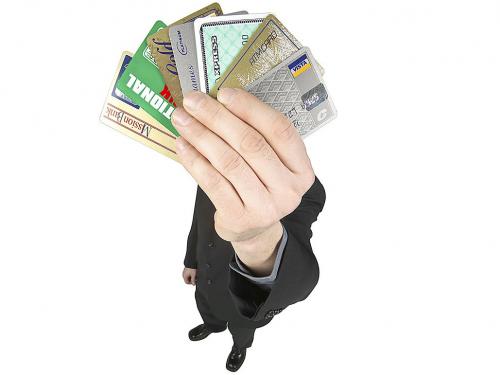If you pay your credit card in full every month, a built-in feature allows you to extend your purchase time without generating interest. secret? A small thing called a credit card grace period.

Credit card credit limit The maximum amount you can charge without paying a fine depends largely on your credit history. If your credit is determined primarily by your credit score, it is good that credit card issuers will be more willing to extend your higher credit limit. Income is another determining factor. Even if your credit history is perfect, if your salary is the lowest, the bank is unlikely to send you a high-limit card. They want to know that you are making enough money to pay for your credit card balance.
1. Your credits will drop
A large part of your credit score - 30% is based on the amount of credit available to you. The ratio of credit card balance to credit limit is called your credit usage. The higher your credit card usage, or the closer your credit card balance is to your credit limit, the more your credit score will be hurt.
Using up to one credit card is bad for your credit score. Maximizing the use of your credit card is even worse. Fortunately, when you pay off your balance, your credit score can be recovered, but first, you must stop creating more debt.
2. Your credit score won't like it
Maximizing your credit card balance may result in you being denied a mortgage or a car loan. When you apply for a loan, the bank checks your available credit limit. If your credit card balance is too high, the bank will treat this as a signal that you already have more debt than you can handle.
Even if your balance is just below your credit limit, you may still exceed your credit limit once your balance is charged to your finances. Once your balance exceeds your credit limit, you can apply for an additional penalty, which will allow you to further exceed your limit. It's hard to recover, especially if you only pay the minimum payment each month, usually paying only interest and paying less.
4. Balance is more difficult to repay
Depending on your credit limit, maximizing your credit card balance may take several years to repay, especially if you only pay the minimum payment each month. You may plan to pay the balance in full, but as the payment due date approaches, other unforeseen expenses may make the payment too difficult.
5. You can trigger the free throw rate
The credit card company has the right to increase your credit card rate if you violate the credit card terms and exceed your credit limit. The penalty rate is the highest interest that your credit card company can charge, depending on your credit card terms, which may be 30% or more. Applying a high interest rate to a high balance can be catastrophic, as it may mean that the large amount you pay each month applies only to interest, not to the balance.
6. Minimum payment is higher
The minimum payment for your credit card is based on the size of your credit card balance. As your balance increases, your monthly minimum payment will increase. Maximizing your credit card will increase the amount you must pay each month.
If you have a hard time sticking to budget and break-even, then a higher minimum payment will put more pressure on your finances.
7. Your credit card is no longer good
One reason to get a credit card is to use it when you need a credit card. However, maximizing the use of your credit card will eliminate this benefit. At that time your credit card really was a burden. In an emergency, you will not be able to use your credit card or even book a rental car or hotel.
It's a good idea to keep your credit card balance low enough so that you can afford it every month, remembering that any balance over 30% will have a negative impact on your credit score. To avoid misuse of credit cards, please check your credit line before purchasing a credit card.



